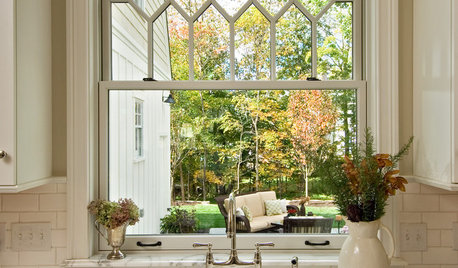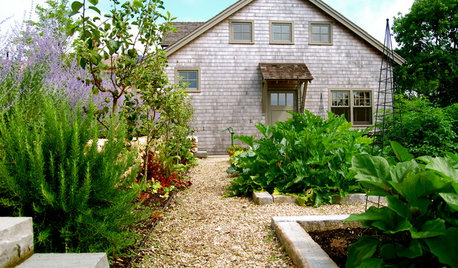Has anyone used Milky Spore successfully?
aka_peggy
17 years ago
Related Stories

KITCHEN DESIGNGreat Material: Milky Marble
How to add a little or a lot of beautiful white marble to your kitchen, bath and more
Full Story
INSIDE HOUZZTell Us Your Houzz Success Story
Have you used the site to connect with professionals, browse photos and more to make your project run smoother? We want to hear your story
Full Story
KITCHEN DESIGNThe Cure for Houzz Envy: Kitchen Touches Anyone Can Do
Take your kitchen up a notch even if it will never reach top-of-the-line, with these cheap and easy decorating ideas
Full Story
COMMUNITYCommunity Building Just About Anyone Can Do
Strengthen neighborhoods and pride of place by setting up more public spaces — even small, temporary ones can make a big difference
Full Story
BUDGET DECORATINGThe Cure for Houzz Envy: Entryway Touches Anyone Can Do
Make a smashing first impression with just one or two affordable design moves
Full Story
ARCHITECTUREHave It Your Way — What Makes Architecture Successful
Universal appeal doesn't exist in design. The real beauty of any home lies in individualization and imagination
Full Story
GARDENING GUIDESThe Simple Secret to Gardening Success
Learn the kinds of soil and a DIY type test to make sure you’re putting the right plant in the right place
Full Story
FURNITURE10 Secrets of Successful Secondhand Furniture Shopping
Design professionals offer tips on how, where and what to buy
Full Story
SALVAGEDIY: Secrets of Successful Upcycling
Learn how to find and customize salvaged pieces and materials to create one-of-a-kind furniture and accessories you love
Full Story
DESIGN DETAILSThe Secret to Pocket Doors' Success
Pocket doors can be genius solutions for all kinds of rooms — but it’s the hardware that makes all the difference. See why
Full StorySponsored






gardener_sandy
aka_peggyOriginal Author
Related Professionals
Reading Landscape Architects & Landscape Designers · Glassmanor Landscape Architects & Landscape Designers · Manorville Landscape Architects & Landscape Designers · Clermont Landscape Contractors · Addison Landscape Contractors · Cupertino Landscape Contractors · Downey Landscape Contractors · Fort Payne Landscape Contractors · Hendersonville Landscape Contractors · New Berlin Landscape Contractors · Lebanon Siding & Exteriors · Newington Siding & Exteriors · Sacramento Siding & Exteriors · West Milford Siding & Exteriors · Lansing Siding & Exteriorsgardener_sandy
annebert
aka_peggyOriginal Author
gardener_sandy
blueheron
aka_peggyOriginal Author
olga_6b
tgerrard
shorebill